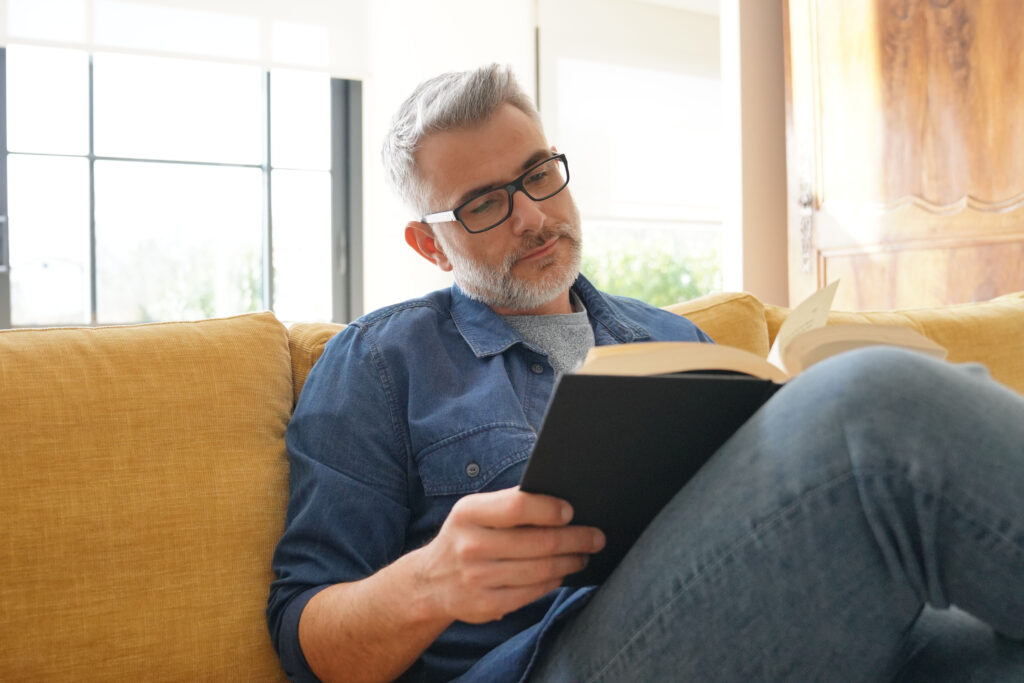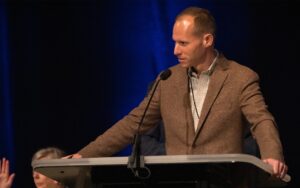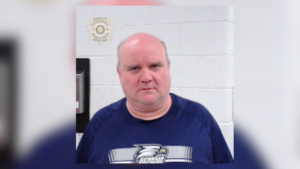
It’s that time of year when people make goals. I’m of the mind that a few small goals at the beginning of the year are wiser than a list of seventeen milestones you’ll forget by February. I’ve come to believe this after reading Drew Dyck’s book, Your Future Self Will Thank You a few years ago. This and bowing to reality as I get older and know myself. Some of you are super organized goal-setters, fastidious journalers, and have color-coded spreadsheets with boxes for every second of the rest of your life. The rest of us slackers will forgive you one day.
One short goal you might make this next year is to read more. I realize that the life God has called me to requires, necessitates, and even empowers reading. My last few paying jobs have essentially demanded it. Plus, I’ve been reading since I was four years old in a house that didn’t have a television but did get three newspapers delivered every day. Not everyone has a calling like mine or others like me where book lists are normal, where libraries naturally expand, and where an unopened laptop is a cause for concern. Some of you are in vocations where reading time is restricted to small pockets of time at night or the dark hours of the morning. Some of you are in seasons of life where parenting has just about taken up all of your energy. Some of you struggle to read because of learning issues. So this is not a guilt post about how much you should be reading.
But if you’d like to read more—and I believe reading is a good discipline with good health benefits—here are some ways you can do it.
Start by reading stuff you enjoy. Yes, read in your interest or hobby. For me, that’s typically biographies or history. Although I will often read fiction, sometimes thrillers or historical fiction. What do you like? Start there. Reading for pure pleasure is a way to sort of get you in the habit of reading in helpful ways.
Read books others recommend. What are your friends reading and recommending? What are people whom you admire reading? That’s a good place as any to start.
Read for knowledge and wisdom. This is more disciplined reading. If you are taking formal classes in an undergraduate or Master’s program, you have no choice but to read. But even if you are not, perhaps find a book you might read for the purpose of learning and growing: perhaps theology, perhaps Christian living, perhaps history, perhaps a classic. Not all of your reading should be “must-reads” but some should be.
Have mini-goals for reading. This is especially important if I’m reading something I’m required to read, either for teaching a class, taking a class, or working on a book project. Sometimes, these duties offer up books I enjoy. And sometimes they don’t. I set mini-goals for myself, like, I won’t get up from this chair until I’m through this chapter or I’m going to read 30 pages today. I’ve found mini-goals, especially in a more difficult volume, help me get a lot of reading done.
If a book is unenjoyable or not well-written, you have permission to not finish it. If you are reading a book you assumed was going to be better than it is, you don’t have to read till the end. If you’ve given it a few chapters and it’s not working, close it up and put it away. If you are required to read it for a class, you don’t have the option of not finishing it, but you can skim it. Skimming is ok.
Bring a book with you wherever you go. Grab your book when you have to pick up the kids and wait in the car line or take one of them to the doctor. Take it with you for the times you are waiting or have downtime and can sneak in a few chapters. Take a Kindle with you if you have one. Which brings me to my next tip. Oh, and always, always bring at least one book on any overnight trip. You should probably bring two, just in case. And use that time on your flight to read (unless there is football on).
Read a bit with your morning devotions. I started doing this a few years ago. After my morning Bible reading and prayer, I try to read a chapter or two of a book. I’m already sitting at the table. There’s coffee left. I’ve got some time before I’ve got to get my kids to school or get to school to teach. My brain is engaged. So, I read a bit. Might not be your thing, but it works for me.
Read in a variety of mediums. Ok, so I’m mostly a book purist in that about 70% of my reading is in paper books. I’ve always loved the feel of a book, the way the pages of a new book just crackle with potential, the way my mind memorizes phrases on certain sides of the page. The way I can write in the margins. The way I can pull it off the shelf and revisit it as my eye happens to pass by it. The way I can lend a book I love to someone I love. And yet I’ve also come to love my Kindle Paperwhite. This is the one that doesn’t function like an iPad. There are no apps and other distractions on there and it’s lit in a way that doesn’t cause eye strain. I’ve found I can consume books on a Kindle and highlight notes in different ways. It’s not quite like a real paper-bound book—which is still one of the great inventions in the history of the world— but it is very convenient. I can read at night without a light keeping my wife from sleeping. I can easily pack into a backpack for travel.
Listen to Audiobooks. This probably should have been under the previous point, but it was getting too long. Yes, audiobooks count as reading and don’t let anyone tell you differently. In a sense, audiobooks harken back to the oral tradition where much knowledge was transferred before the invention of the printing press. I subscribe to Audible. It’s my one hobby (along with watching football, visiting Presidential libraries, and playing golf, though I haven’t played in a while because it’s time-consuming and expensive). I don’t hunt or fish or make artesian furniture. I do pay for Audible. For me, the only books I listen to are either biography/history or fiction. There is something about narrative storytelling that is captivating to me. A few rules about audiobooks. Read for pleasure, not efficiency. Ignore the folks who tell you to read at 5x speed so you download all this data in your brain. Chipmunk history doesn’t appeal to me. Second, make sure the narrator is good. A lousy narrator can ruin a good book. There is nothing worse than a narrator who can’t do differing voices and voice impressions but who thinks he can. A good narrator can make an ordinary book extraordinary.
There are ways to get books cheaply. I’m in the rare position of getting a lot of books sent to me by friends and publishers both for my academic work and because of my columns and podcast. I’m so thankful for this. But alas, I still often need (want) to buy books that I can’t get free. If money is tight (and whose money isn’t tight these days), there are ways to get books. There are libraries, who, if they don’t have books, can easily acquire them. You can also watch for Kindle deals. Tim Challies often posts Kindle deals. On Twitter, Barnabas Piper posts deals every day as does Thomas Kidd. You can also frequent used bookstores. When we lived in Nashville, we’d frequently visit the great McKays, which is a massive used bookstore. They both buy books and sell books. So we’d bring books we didn’t want anymore, get massive credit, and then buy used books. Here in Fort Worth, no McKays, but we do have Half-Priced Books (HFB). HFB has locations in a lot of cities. Places like this typically have the classics, lots of biographies, and a surprising amount of Christian titles. (Hint: if you are enrolled in school, places like HFB are a great source of the books you need for a fraction of the cost. If you teach in any capacity, you get a discount.)
Put your phone down. This should have been the first point. I struggle with this. It is way too easy to pick up my phone and doom scroll social media than to, you know, read. A few tricks for me: put your phone in another part of the house and then go read and tell yourself you won’t move until you finish a couple of chapters. I also, when doom scrolling and finding interesting articles posted by people, use the “save later” feature on my browser. Then I revisit those later.
Read at night before bed. I try to make reading a book the last thing I do before going to sleep. I usually sleep much better this way. I don’t always do this. I sometimes am tempted by the blue light of the iPhone, even though every study says it’s bad to consume blue light before sleeping. Reading a book before bed does two things: it sets your mind in a healthy way before you sleep,and it calms you in a way that puts you to sleep (unless it’s a thriller and you are propping your eyelids open to keep reading. Thank you, Dan Silva).
I hope these tips help. If you are not a big reader, but made it all the way this far, don’t be ashamed by how much you haven’t read. Start now with small goals. Maybe work through a book this month and see how you do.
















